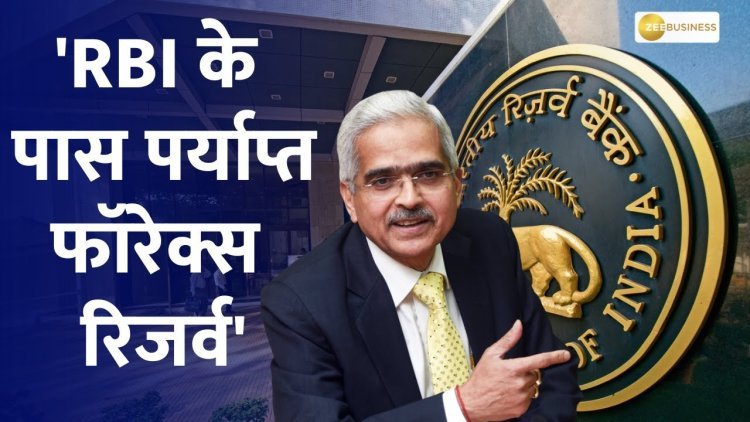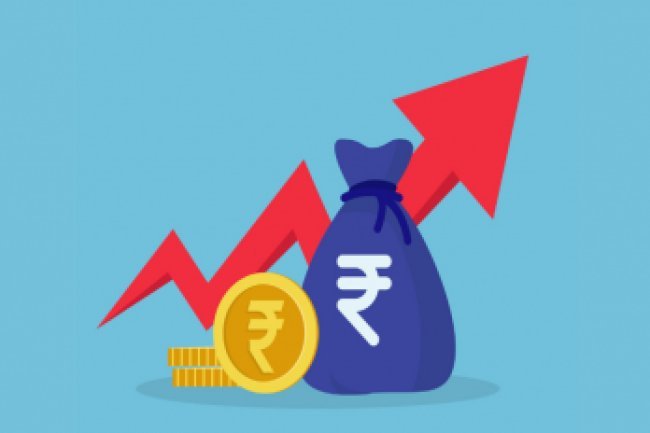RBI Chief Shaktikanta Das Successfully Stabilizes Volatile Rupee with Robust Forex Reserves

RBI Chief Shaktikanta Das Successfully Stabilizes Volatile Rupee with Robust Forex Reserves
In a significant achievement for India’s economy, Reserve Bank of India (RBI) Governor Shaktikanta Das has effectively curbed volatility in the rupee while allowing it to gradually depreciate, aligning with Prime Minister Narendra Modi’s export-focused strategy. Under Das’s leadership, India’s foreign-exchange reserves have soared to nearly $700 billion, drawing parallels to China’s reserve accumulation two decades ago.
Das’s proactive measures have transformed the rupee from Asia’s most unpredictable currency into one of the more stable ones, despite it hitting record lows near 84 per dollar. This stabilization has been particularly noteworthy in light of recent global market fluctuations triggered by the Federal Reserve’s interest rate adjustments, which did not lead to significant rupee depreciation or heightened concerns over import costs and inflation.
Central to Das’s tenure has been the dual approach of maintaining currency stability while bolstering foreign reserves, which serves as a buffer against potential capital flight amid global market uncertainties. This strategy has attracted foreign investments and improved India’s current account deficit, a recurring challenge for his predecessors.
The influx of nearly $20 billion linked to JPMorgan Chase’s inclusion of India in its emerging markets bond index has contributed to the RBI’s efforts to accumulate hard currency. Additionally, the current account deficit has recently narrowed, aided by lower oil prices from Russia and the establishment of service hubs by global firms seeking to tap into India's vast market of 1.4 billion people.
With the rupee stabilized, the RBI is poised to consider lowering interest rates as inflation trends toward the target of 4%. While a rate cut may occur later this year, the challenge of balancing this with the need for ongoing currency stability may fall to Das’s eventual successor.
There is currently no information regarding Das’s potential successor or whether he will receive an extension of his term, which ends in December.
Experts are praising Das’s strategy. Sonal Varma, Chief Economist for India and Asia ex-Japan at Nomura Holdings, noted that the RBI has successfully insulated the economy from external shocks. She emphasized the importance of continuing to build foreign exchange reserves as a protective measure.
Das, a seasoned bureaucrat, has often referred to the growing reserves as an “umbrella” designed to shield India from economic storms, drawing lessons from the 2013 “Taper Tantrum” that led to a severe currency crisis. However, the RBI's market interventions have drawn scrutiny, including being placed on the US Treasury’s watchlist for currency manipulators.
Despite criticism from entities like the International Monetary Fund, which has questioned India’s management of its currency, Das has defended the RBI’s approach. At a recent IMF-World Bank meeting in Morocco, he argued that the challenges faced by emerging markets should be considered when assessing currency practices.
Economists caution that while the current strategy has its merits, it may also lead to risks, such as reduced incentives for hedging against currency fluctuations. Nonetheless, Dhiraj Nim, an economist at ANZ Group Holdings, believes that the benefits currently outweigh the costs.
Das’s measures have not only made Indian financial assets more attractive to global investors but have also aligned with the government's goals of increasing trade denominated in rupees. This approach is seen as crucial for boosting exports, especially in sectors like electronics, which are vital to Modi's vision of a $500 billion electronics industry by the decade’s end.
Efforts to maintain a stable exchange rate and prevent capital flight are integral to Das's agenda, which has also included stringent measures against speculative trading in currency futures and intervention in non-deliverable forwards markets in financial centers like Singapore.
R. Gandhi, a former deputy governor of the RBI, underscores the necessity of continued reserve accumulation, not only to combat volatility but also to reinforce the nation’s economic fundamentals.
Click Here to Visit
What's Your Reaction?















